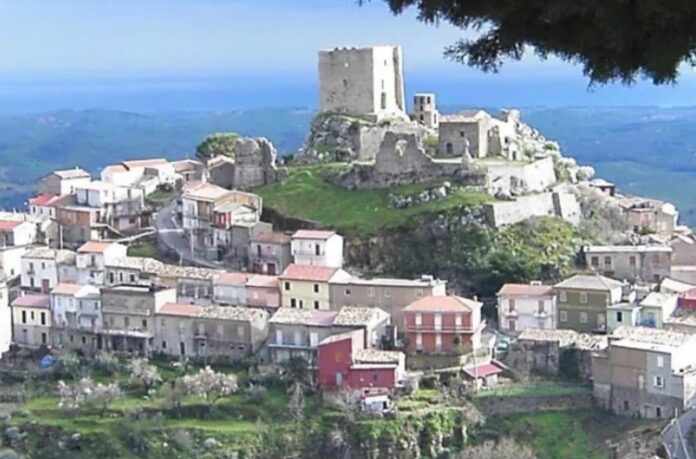In a bold and unorthodox move, the mayor of Belcastro, a small village in southern Italy, has issued an official decree banning residents from becoming seriously ill. The decree, which has sparked widespread debate, aims to draw attention to the dire state of healthcare in the region, where a lack of medical facilities and resources has left many vulnerable, especially the elderly.
“I am ordering all residents to avoid any illness that could require emergency medical treatment,” announced Antonio Torchia, the mayor of Belcastro. Torchia’s decision, which he has described as a “humorous provocation,” comes as a response to years of chronic underfunding and inadequate medical services in the village and the Calabria region as a whole.
Healthcare Crisis in Calabria: The Real Emergency
Belcastro, located in Calabria—Italy’s southernmost region—is home to just over 1,200 people, nearly half of whom are aged 65 or older. The residents have long faced limited access to healthcare, with the nearest Accident & Emergency (A&E) unit situated a challenging 45 kilometers away. To make matters worse, the single road connecting the village to the A&E unit has a speed limit of only 30 km/h (18 mph), meaning that in emergency situations, speed is not an ally.
“It’s difficult to feel safe knowing that the closest medical help is miles away, and the only way to get there on time is by taking dangerous roads,” Torchia explained in an interview. “When the road itself poses more of a risk than the illness, something has to be done.”
The problem is compounded by the lack of local healthcare services in the village. Belcastro’s on-call doctor is available only during limited hours and is not present on weekends, holidays, or after-hours. This means that any medical emergency outside of regular hours leaves residents with little to no recourse.
Striking Out Against Healthcare Neglect
Torchia’s provocative decree forbidding illness has drawn attention to a much larger issue in Calabria. Despite local efforts to raise awareness and advocate for better healthcare, the region continues to grapple with crumbling medical infrastructure and a chronic shortage of doctors. Political mismanagement, compounded by interference from criminal organizations, has drained the region’s medical system of much-needed resources, and government-appointed administrators have struggled to address the issues effectively.
Since 2009, eighteen hospitals in Calabria have closed due to a staggering debt crisis, leaving the region in desperate need of medical personnel and equipment. As a result, many Calabrians have no choice but to seek medical treatment outside the region, placing additional strain on nearby healthcare facilities.
The situation has become so dire that in 2022, the Italian government struck an agreement with Cuba to send nearly 500 doctors to Calabria over a three-year period. The regional governor, Roberto Occhiuto, praised the Cuban doctors for “saving” Calabria’s struggling hospitals, but the region’s healthcare system remains in shambles.
Torchia’s Decree: A Catalyst for Change or Empty Provocation?
Despite the far-reaching consequences of Belcastro’s medical crisis, Torchia’s decision to ban sickness has been met with mixed reactions. Some have hailed the mayor’s bold stance as a much-needed jolt to the system, while others remain skeptical about its effectiveness.
“It’s a desperate measure, but I think it works,” said one resident of Belcastro. “It’s making people take notice of a problem that’s been ignored for too long. Maybe now someone will start listening.”
Another resident echoed the sentiment, saying, “He has used a provocative decree to attract attention to a serious problem. This will shake consciences, even if the decree itself is not enforceable.”
However, others question how realistic such a ban is. After all, illness is unpredictable and can strike without warning, regardless of how careful a person is. Moreover, with Belcastro’s healthcare services already under strain, many wonder how Torchia could hope to enforce such a decree, if at all.
“The rules in the decree are absurd,” one critic remarked. “You can’t tell people to not get sick. It’s unrealistic and, quite frankly, offensive to those who genuinely need healthcare. The issue is that there is simply not enough medical care to go around.”
Despite such criticisms, Torchia stands firm in his view that the decree, however extreme, was necessary. “It’s been impossible to get the authorities to take this problem seriously for years,” he said. “We’ve sent urgent notices, but nothing changed. I had to do something that would really grab attention. This is the only way people will see how bad things have become.”
The Call for Immediate Action
At its core, Belcastro’s controversial move is a call to action—an urgent plea to the government to address Calabria’s failing healthcare system and to prioritize the needs of its people. Torchia himself hopes that by drawing attention to the issue in such an unconventional way, he will force the Italian government and regional authorities to finally take action.
“I’m not asking for miracles,” Torchia noted, “but we need urgent reforms. The lives of people here are at risk, and the lack of medical resources in a region like Calabria should be unacceptable.”
Italy’s National Health Service (SSN) continues to face challenges in providing adequate healthcare in many parts of the country, but the problems in Calabria are among the most extreme. As the region continues to fight for its medical future, the example of Belcastro serves as a glaring reminder of the ongoing struggles faced by many rural areas in Italy, and of the lengths to which local leaders are willing to go to protect their communities.
Torchia’s decree may be symbolic, but the message is clear: without change, the most vulnerable will continue to suffer. With each passing day, Belcastro’s 1,200 residents remain caught in a waiting game, hoping that the attention brought by their mayor’s drastic move will lead to real action, rather than just more empty promises from the powers that be.

